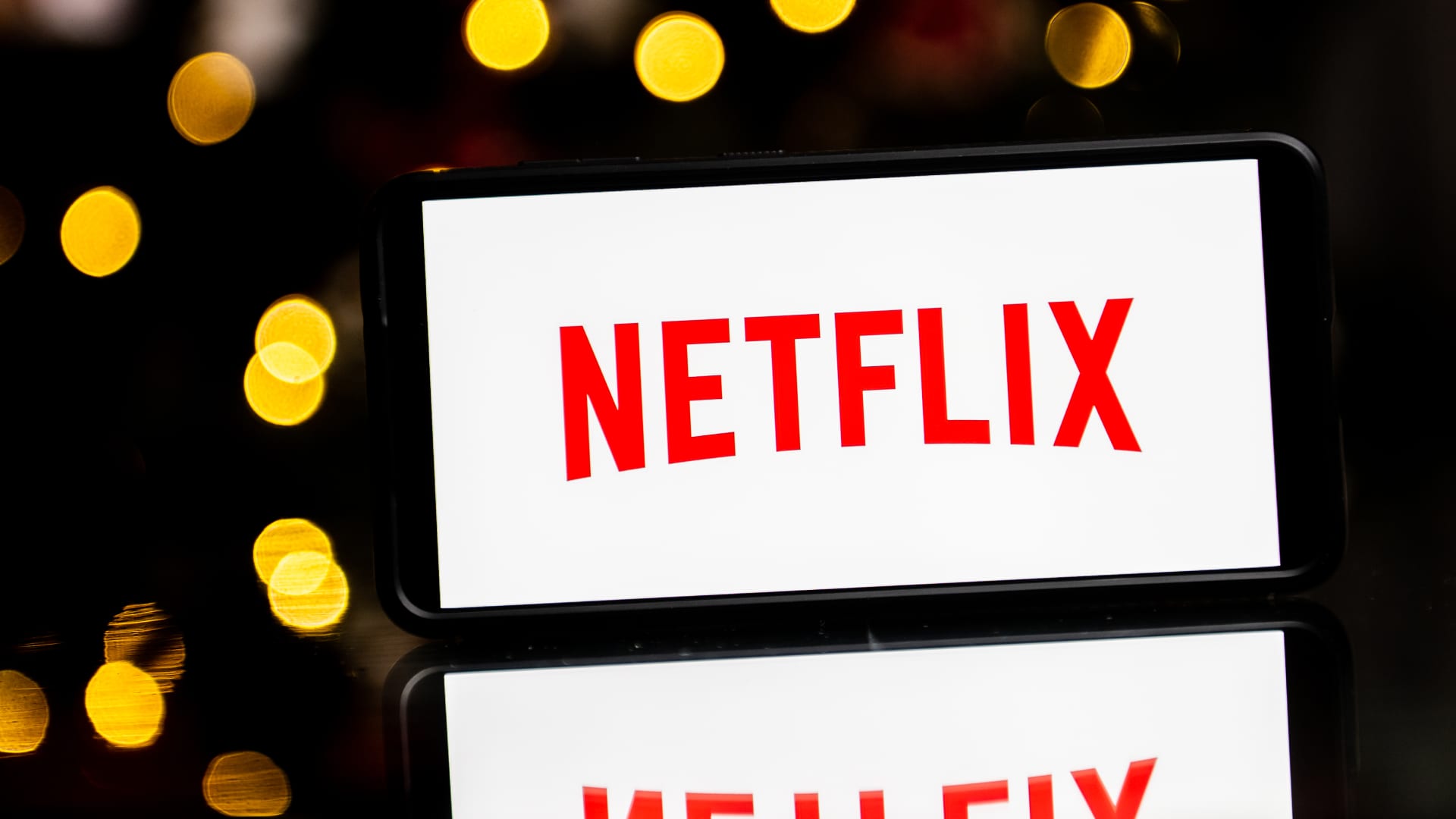
Netflix said Wednesday that its quarterly revenue and subscriptions rose, as efforts to curb password sharing took hold.
Here’s what the company reported for the second quarter versus what analysts expected, according to Refinitiv:
- Earnings: $3.29 a share vs. $2.86 per share expected
- Revenue: $8.19 billion vs $8.30 billion expected
The streaming giant said it added 5.9 million customers during the second quarter amid its broader crackdown on password sharing in the U.S. Netflix said it would roll out its new policy to the rest of its customers on Wednesday.
Netflix’s stock fell as much as 5% in after hours trading.
The company reported revenue of $8.19 billion, up 3% from $7.97 billion in the prior-year period. Net income of $1.49 billion climbed from $1.44 billion in the year-ago quarter.
The earnings report comes soon as investors look for more information on the rollout of Netflix’s ad-supported streaming tier and push to boost subscriptions by rooting out account sharing.
However, Netflix said it was too early to report a breakdown of revenue from the ad-supported tier — which was introduced late last year — as well as the accounts that have come from the new password policy.
Netflix said Wednesday it expects a boost in revenue in the second half of the year as it begins “to see the full benefits of paid sharing plus the steady growth in our ad-supported plan.”
Netflix said it now forecasts revenue of $8.5 billion, up 7% year over year, for the third quarter. It attributed the expected revenue growth to more average paid memberships.
The company also anticipates paid net subscriber additions in the third quarter will be similar to the second quarter. Meanwhile, Netflix expects revenue growth in the fourth quarter to “accelerate more substantially” as the efforts to curb password sharing gain steam and as advertising revenue grows.
In May, Netflix began alerting members about the policy to deter the use of other people’s accounts. Subscribers can either transfer a profile to someone outside of their household so they can pay for their own account, or the member can pay a $7.99 additional fee per person.
The company’s subscriber base rose in the weeks following the sharing policy rollout, according to a report from Antenna.
Netflix introduced both the new sharing policy and ad tier in the last year as part of its response to its first subscriber loss in more than a decade in 2022.
Netflix’s stock has risen with the rollout of the initiatives. The company’s shares have climbed more than 60% this year, and it notched a 52-week high on Wednesday amid expectations it would show growth this quarter.
The company on Wednesday said it hopes the changes will help to “generate more revenue off a bigger base,” adding it wants to use the additional funds to reinvest in the platform.
In May, Netflix said it expanded its paid sharing policy to more than 100 countries, which account for more than 80% of its revenue.
“The cancel reaction was low and while we’re still in the early stages of monetization, we’re seeing healthy conversion of borrower households into full paying Netflix memberships,” Netflix said Wednesday, adding it would address the issue in the remainder of the countries that it is available.
Meanwhile, media companies have turned more to ad-supported streaming as a way to get to profitability.
During its pitch to advertisers in May, Netflix unveiled few details about its ad-supported tier, albeit enough to push its stock higher. The company said it had 5 million active users for the new tier, and 25% of its new customers were signing up for the tier in areas where it’s available.
On Wednesday, Netflix confirmed that it removed its “basic” ad-free plan, making its standard plan with ads its cheapest option at $6.99 a month. The standard and premium tiers without commercials cost $15.49 and $19.99, respectively, a month.
Netflix is also contending with the potential fallout of the Hollywood writers and actors strikes.
Analysts expect Netflix to fare better than other media companies during the work stoppage due to its deep bench of content, particularly from international sources.
As a result of the strike, Netflix increased its free cash flow forecast to $5 billion for 2023, up from a prior estimate of at least $3.5 billion due to lower spending on content this year.
This is breaking news. Please check back for updates.